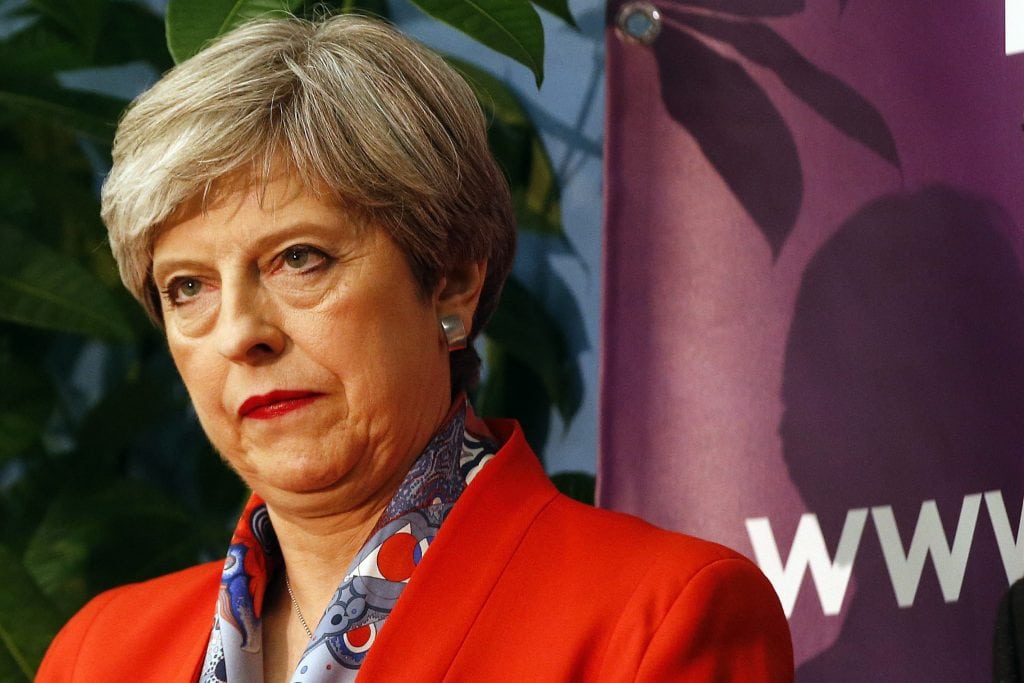Skift Take
Prime Minister Theresa May's reputation has been shattered by her own hubristic behaviour and she is only clinging onto power through a loose alliance with another party. The UK is in a much weakened position as it prepares to start Brexit negotiations.
Prime Minister Theresa May’s gamble on calling an early election to shore up her mandate for Brexit failed spectacularly after her right wing Conservative Party actually lost seats in the UK general election.
Jeremy Corbyn – the UK’s answer to Bernie Sanders, in some ways – did much better than expected, leaving the country with a hung parliament just10 days before Brexit negotiations are set to begin.
May is determined to cling to power and has already said she will look to form a minority government but after her humiliating defeat she will now have to rely on Northern Ireland’s Democratic Unionist Party (DUP), which won 10 seats, to get anything done. Even with the DUP’s help her position looks precarious and to get any support she will need to offer something in return.
This is where it gets interesting for the travel industry. While tourism merited precisely zero mentions in the Conservative manifesto, it is a big economic driver in Northern Ireland.
The DUP’s manifesto lists “making tourism a £1 billion industry” as one of its pillars for improving Northern Ireland’s economy and improving the industry could be one of the concessions that the DUP looks for as part of any deal with the Conservatives.
“The DUP supports the development of a new Tourism Strategy for Northern Ireland to take the industry here to a new level and reach our full potential,” the party said in its manifesto.
The DUP might look for cash to help look for new tourism products but it also has two specific policies in mind: the abolition of Air Passenger Duty and a cut in the VAT rate for tourism businesses.
The Air Passenger Duty issue has been a bugbear of the travel industry for the last couple of years. Effectively it is a tax on air travel, which is then passed on to the consumer. Trade Group A Fair Tax on Flying has tried for years to get it abolished but has only had very limited success. The government still regards it as a reliable money maker.
Similarly, the Cut Tourism VAT (value added tax) organization has lobbied for a reduction in the levy from 20 percent. Hotels and attractions in the UK currently pay a substantially higher rate than elsewhere in the European Union. Critics say that reducing tourism VAT would stimulate demand.
The reason why these are big issues for the DUP is that across the border, the Republic of Ireland scrapped the Air Passenger Duty in 2014 and has a VAT rate on tourism of just 9 percent.
“Levels of VAT and Air Passenger Duty (APD) are making businesses less competitive than their equivalents in the Republic of Ireland,” said the then-Northern Ireland Affairs Committee chairman Laurence Robertson in March.
The DUP might see this as an opportunity to level the tourism playing field by securing a couple of tax cuts that would likely prove popular with voters, something that might end up impacting the whole UK.
“It remains to be seen how the Conservatives and DUP will work together. The DUP stated in its manifesto that it supports the abolition of Air Passenger Duty and we welcome any developments towards reducing this punitive tax,” said Alan Wardle, director of public affairs, at UK travel association ABTA.
A softer Brexit?
Alongside specific tourism initiatives there is also the possibility that the type of Brexit the UK achieves might be different.
Before the election, May was pushing for a “hard” Brexit i.e. the total removal of the UK from all forms of European integration and she had intimated an unwillingness to compromise on anything with her EU counterparts. Now that she is considerably weakened there is some hope that a so-called soft Brexit may be achieved.
The tourism and hospitality industry is particularly reliant on EU workers and has repeatedly warned of dire consequences should there not be some sort of phased approach to cutting immigration — one of the big drivers of the entire Brexit campaign.
“There is an expectation perhaps that such a hard Brexit will no longer be viable,” said Ufi Ibrahim, chief executive of the British Hospitality Association.
The difficulty for the hospitality association and for those that voted “remain” is that both the Conservatives and Labour are committed to Brexit and the idea that free movement of people will end and will be replaced by some form of managed immigration.
“We cannot and will not rest on our laurels in terms of ensuring that any immigration controls will not be pushing our industry to a cliff edge and will not be detrimental to us going forward,” Ibrahim said.
The Daily Newsletter
Our daily coverage of the global travel industry. Written by editors and analysts from across Skift’s brands.
Have a confidential tip for Skift? Get in touch
Photo credit: Prime Minister Theresa May listens as the declaration for her constituency is made in the general election in Maidenhead, England. Her gamble in calling an early election has backfired spectacularly. Alastair Grant / Associated Press
